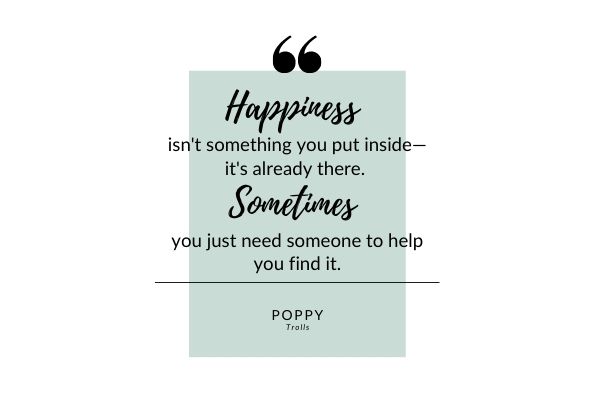Encouragement vs. Praise: Why the Differentiation Matters

You just tied your 3-year-old’s pigtails, then watched her bounce off toward the sandbox with big plans for a princess castle. In your eyes, she’s simply the best thing since sliced bread.
“You’re just SO cute,” you tell her when she finds you for a snack.
Your 9-year-old is a great athlete. His team just won the Little League trophy; thanks, in part, to his home runs. On a celebratory trip to his favorite restaurant, you beam with pride.
“You’re so good at sports,” you say. “Your team won, thanks to you!”
There’s also your difficult teenager, who’s more like the best thing since moldy bread these days. Regardless, she comes home one day with her best report card yet. You can’t help but jump for joy.
“I’m SO proud of you. See how brilliant you are?!”
It seems harmless. It even seems good. But when the kind neighbor tells your pigtailed toddler how cute she is and your daughter responds, “I know”–she’s suddenly not quite as adorable.
When your 9-year-old decides he doesn’t need to practice baseball because he’s already SO good, his skills actually start declining.
And when your teenager feels overly confident about her intelligence, she’s actually less likely to put in the hard work when classes get tougher.
As you may have already seen in your home, compliments and praise can negatively affect our kids.
Wait, you think. Isn’t sweetness and unabashed cheerleading what Positive Parenting is all about?
Actually, not at all.
Positive Parenting focuses on empowering our kids, and the best tool for the job isn’t praise; it’s Encouragement. Encouragement is so important that it’s one of the first tools–out of 36–that I teach parents in my online course.
I’ve even compiled a short-list of Encouraging Words and phrases that can be emailed to you for free within minutes so you can start shifting your language!
With Encouragement, you focus your words on the positive action, behavior, or improvement you’d like to promote, rather than on the result.
For example, the praise, “Good job!” could become a more encouraging, “Wow, your hard work really paid off!”
And instead of praising your child with, “You’re so amazing at basketball!” you can tie the big win to the dedicated practice that developed those skills: “It’s clear you’ve been practicing–your passing has really improved!”
Encouragement is a more empowering way of providing positive feedback to kids. Essentially, it helps them replicate the skills they need to achieve a similar result in the future.
ProTip: For Positive Parenting Solutions Members, please study/review Step 2: From Complaining to Contributing: Empower Your Kids to be Confident, Capable, and Independent
I realize the line between praise and encouragement may still seem vague, or even unimportant. But that’s why it’s all the more crucial to define.
The differentiation makes a world of difference.
What Is Praise, and Why Is It A Problem?
Praise is a Reward
These days, kids are rewarded for many things: M&Ms in exchange for using the potty, dessert for eating veggies, and even money for making good grades.
While praise isn’t a material possession like cash, a new toy, or even ice cream, it offers the same quick hit of satisfaction. Although it feels really good to receive, the effects of praise don’t necessarily last long and are even weakened over time.
The views your self-conscious tween received on his Instagram video, for instance, left him on a high for a solid week. But now his feelings of insecurity have returned. His new goal is even more views, and that cycle will continue.
Some parents praise incessantly, making the reward of the praise less meaningful. Others praise rarely, forcing children to yearn for recognition.
In either case, offering steady Encouragement for children’s efforts is preferable. It forces kids to see the depth of their actions and to appreciate internal effort more than external outcomes.
Praise is Superficial, Regardless of Its Intent
Your 7-year-old daughter loves it when you compliment her drawings. She spends all afternoon coloring and constantly asking your opinion.
“What do you think about this one?”
“Do you like my unicorn, Mommy?”
But when you become too busy on a conference call to compliment her unparalleled artistry, she loses all interest. She is performing for praise rather than simply drawing because she enjoys it.
Praising our children’s talents may feel natural or even required, but it usually doesn’t focus on their determination or their love of an activity.
Think about it. We don’t want our children to do things just to impress us or to be noticed. Quite the contrary; we want them to do things because they are passionate about them.
It’s normal for kids to want recognition and approval, and they need to know they are supported and loved. But a 12-year-old learning karate just to please his parents and hear their praise–and not because it brings him joy–may not pursue martial arts in the long run. It may even become something he dislikes.
If we want to help our kids focus on what is meaningful to them, praise is an unhelpful distraction.

Once again, praise rewards results. It doesn’t celebrate the activity itself. This is true even if the intention of praise is to make kids feel good and happy. It’s also true when the compliment is sincere. I mean, it could be a very beautiful unicorn. But that isn’t the point.
When your daughter shows you her make-believe drawing, try helping her find her own satisfaction in her work. An encouraging phrase might sound like:
“It’s fantastic that you enjoy drawing so much. What do you like to imagine while you color your unicorn?”
Or, “You put a lot of effort into this picture! What’s your favorite part?”
Praise Focuses on the Doer–Not the Deed
Your ten-year-old just decided to take out the trash. Is he feeling guilty, or does he want something? you wonder in suspicion.
When you ask him about it and he replies, “I just thought I’d take out the trash because it was really full,” your jaw hits the floor.
You are the best ever!!,” you say. And you really mean it.
Recognizing kids for good deeds is the right thing to do. But the way in which we do so is equally–if not more–important.
Your son shouldn’t be placed on a pedestal just for taking out the trash. Sure, it’s great–but it’s not amazing. However, he should be encouraged for his actions and the impact that small effort made.
“Thanks for taking a few moments to take out the trash. It helped to have an empty bin while I was cleaning out the fridge!”
Encouraging good behavior through kind, reinforcing words creates the desire to repeat those actions and recreate the feelings coinciding with them.
Maybe you do believe your son is the kindest kid ever–and he probably is pretty great. But if you tell him so, he might think his kindness comes naturally. And if that’s the case, where is the desire to work harder on his generosity?
Praise Decreases Internal Motivation and Confidence
We want to impart our love to our children and to ingrain confidence. After all, it’s important to raise kids with conviction in their beliefs, their behavior, and their abilities.
Many of us attempt this by complimenting our children in one way or another. We don’t want it to go to their heads, of course, but we also feel they’ll encounter enough self-doubt and obstacles in life to balance our praise.
It may feel right to tell your daughter how smart she is. After all, you know she’ll one day compare herself to her very accomplished peers. It may feel natural to tell your son he’s beyond athletic, despite his occasional awkwardness on the field.
To a certain extent, this is fine. But repeatedly complimenting our children, whether it’s on their special abilities, physical looks, or general traits, doesn’t actually benefit them.
Research by developmental and social psychologist Dr. Carol Dweck backs this up. Her studies show that praise statements affect children’s motivations by instilling fixed–rather than growth–mindsets.
Students with fixed mindsets aren’t as willing to work as hard as those with growth mindsets.
Praise also leans towards the idea of perfection. Whether or not it’s exaggerated (“You’re just the best daughter EVER!” or “You’re the smartest boy I’ve ever met!”), praise is hard to live up to. The fear of failure becomes an imposing factor.
When we want our kids to feel confident in their abilities, we can encourage them by promoting positive behaviors that help them further their skills. “Sticking to a music practice schedule has really made a difference. You seemed so sure of yourself at your concert!”
We can provide encouragement in all aspects of their personal development: their pursuit of knowledge, their hobbies, and their generosity towards family, friends, and community.
If we focus on encouraging even the smallest steps in a positive direction–like volunteering at an animal shelter, baking cookies for a sick friend, or working a little harder on an essay–they’ll feel good about their choices and be more likely to repeat the process.
Kids that lack praise won’t think they’re perfect, nor will they lack confidence. With proper encouragement, they’ll understand that actions and efforts are the true sources of success and fulfillment.
The Best Ways to Use Encouragement
Encouraging children in place of praise might take some practice. After all, we all use a little praise now and again. Still, the following guidelines can help keep encouraging statements on track:
Remember to Commend Positive Actions
A big part of preventing bad behavior is to reinforce good behavior when we see it.
Whether kids are still early in their childhood development or older teenagers leaving the nest, encouraging their positive actions makes a deep, lasting impact.
When a toddler uses his words to explain his frustration with his older sister (rather than smack her, like last time), you can hug him and say, “What a great job expressing your feelings! It makes sense why you’re frustrated.”
Even if it seems sophisticated for a toddler, he’ll understand that what he did (and chose not to do) was correct.
If your teenager decides to study the night before a big exam–instead of going to a high school party–you can encourage her wise choice. “I know you wish you could be at the party tonight, but you should be proud that you took this extra time to learn the material.”
Keep Your Encouragement Effective by Avoiding This Mistake
While Encouragement can be a super powerful strategy for strengthening your kids’ internal drive toward positive behaviors, there’s one common mistake parents make that renders the tool nearly useless. It’s called piggybacking, and it’s a common and easy trap to fall into.
To your kids, a piggybacking statement feels more or less like an “I told you so.”
Let’s say your daughter has some new friends you don’t approve of. They don’t seem very caring–they even seem prone to causing trouble. You decide to warn her, gently, that they may not be the best choice in friends. Naturally, she doesn’t listen.
One day, months later, she comes home crying–she and her new friends had a falling out. Her new crew thought it would be funny to shoplift, and your daughter bravely spoke out against it.
You’re very proud and tell her she made the right decision by speaking out against their actions. You know that must have been hard to do.
You’ve just successfully encouraged her. However, you can’t help but add one more thing…
“You know, I did tell you to be wary of those girls. I wish you had listened to me.”
What would have left your daughter feeling positive and empowered has now left her undermined.
As tempting as it was to remind her that you DO know what you’re talking about every once in a while, it weakened the Encouragement you just offered like a small jab to the gut.
Although she had to learn the hard way, your daughter did come to the right conclusion. Encouragement should focus on–and stop at–that fact alone.
Keep the Word “I” Out of Encouragement
One final watch-out as you begin to use Encouragement. While we do have the power to wield Encouragement, the tool isn’t about us.
Just as Encouragement focuses on the deed and not the doer, Encouragement should only relate to our children. It should not be about us or our feelings.
Seemingly harmless phrases like, “I love how you play the piano with such emotion” or, “It makes me feel proud when you put in so much effort” take the intended focus away from Encouragement.
It’s not about what makes us proud or what we enjoy. It’s about helping our children feel growth and satisfaction.
Some example phrases could be:
“You must feel so proud of your progress!”
“You play the piano in such an expressive way!”
“Wasn’t it fun using your imagination–instead of instructions–to build that LEGO set?”
Otherwise, like that sweet 7-year-old, they’ll never stop asking if we like their unicorns.
Final Thoughts
When it comes to giving our kids a pat on the back, a quick “good job” or “you’re a rockstar” just doesn’t cut it.
Unlike superfluous praise, Encouragement goes much deeper. It motivates a child internally to demonstrate positive behavior and to value things like hard work, improvement, teamwork, and perseverance.
Let’s help our children discover their limitless potential for their own benefit–not ours.
Positive Parenting can’t be defined by just one word or one action. It’s a series of parenting choices we make every day in our parenting lives.
Being familiar with Encouraging Words and Phrases–and employing them regularly–is one of the best ways to keep Positive Parenting on the right track!
What You Should Do Next:
1. Get Quick Actionable TIPS delivered to your inbox
Sign up for my newsletter for parenting tips to help you create a happier home and become the parent you always wanted to be. Plus, when you subscribe, I'll also send you a copy of our strategy-packed guide 10 Tips for Better Behavior – Starting NOW!
2. Unlock the secrets to easier parenting in my FREE CLASS
Register for my free class called How to Get Kids to Listen, Without Nagging, Yelling or Losing Control. Classes run several times per week to accommodate your busy schedule.
3. Transform your family with the 7-Step Parenting Success System® Course
Join the hundreds of thousands of parents who have transformed their families with the 7-Step Parenting Success System® Course. Learn the tools you need to raise happy, respectful, responsible kids and create the family life you always dreamed of having.
About the Author






